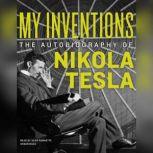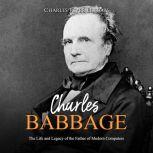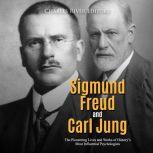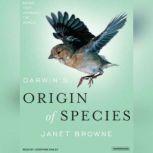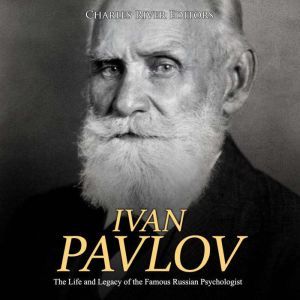
Details
Ivan Pavlov: The Life and Legacy of the Famous Russian Psychologist
Author: Charles River Editors
Narrator: Bill Hare
Unabridged: 1 hr 27 min
Format: Digital Audiobook
Publisher: Findaway Voices
Published: 05/02/2019
Synopsis
“Don't become a mere recorder of facts, but try to penetrate the mystery of their origin.” – Pavlov
Pavlov's dogs are to Psychology 101 what Rome is to antiquity classes. This particular series of experiments and the concept of classical conditioning likely ring a bell for many readers because they have been referenced in countless texts, both scientific and otherwise, and they have seeped into various forms of pop culture throughout the years.
More often than not, the man behind this universally applicable phenomenon gets mentioned in conjunction with the dogs, which only cements his status as a household name over 80 years after his death. In the critically acclaimed comedy The Office, the resident prankster Jim conditions his coworker Dwight with the default Microsoft jingle that plays when a user “unlocks” their workstation and some mints. For days on end, Jim reboots his computer, prompting the memorable two-note tune, and offers his colleague an Altoid each time. One day, Jim restarts his computer, only this time he makes no further movements, and without missing a beat, Dwight instinctively extends his palm. Dwight continued on with his work with an outstretched hand, only snapping out of his daze when Jim inquired what it was that his colleague was doing. “I – I don't know,” a genuinely baffled Dwight admits. His face then contorts with disgust, and he complains about the unsavory taste in his mouth.
The concept has also been parodied in animated television shows, including the classic Warner Brothers animation Pinky and the Brain. In an episode entitled “Pavlov's Mice,” the pair of genetically modified mice are trapped in the cage of none other than a cartoon version of Ivan Pavlov himself. When Pavlov strikes a golden gong, Brain begins to tap dance and sing a children's nursery rhyme, and he is then rewarded with a morsel of cheese. Next to him, the simple-minded Pinky claps giddily and gushes that he could watch Brain sing and dance all day. To this, a miserable Brain reveals a miniature chalkboard crowded with dozens of tally marks. “You have watched it all day, Pinky,” says the disgruntled Brain. “61 times to be exact. It's a conditioned reflex to that infernal gong. I'm powerless to stop it.”
The “relatability” of the classical conditioning experiment is perhaps why it is so often used on the screen, both big and small. The aforementioned examples of the phenomenon may not have taken place in reality, but similar ones manifest can be found in various aspects of daily life. When a child is taunted and teased in school, they may begin to feign illness and drum up all sorts of excuses to stay home from school, for they have now equated the establishment with feelings of terror and dread. Similarly, children who feel unjustly singled out and penalized by an instructor may begin to despise and resent the given subject. Classical conditioning can also be subtle, with something as simple as a song being enough to trigger an emotional response. Hearing a song that reminds one of their ex may elicit a sense of sorrow or disgust, depending on the conditions surrounding the end of the relationship. Conversely, a throwback radio station playing a listener’s favorite song back in high school might awaken feelings of nostalgic bliss.
Ivan Pavlov: The Life and Legacy of the Famous Russian Psychologist examines the experiments that made Pavlov one of the 20th century’s most famous psychologists.
by Nikola Tesla
Written by Nikola Tesla at the age of sixty-three, this autobiography is a fascinating glimpse into the interior life of a man who may have contributed more to the fields of electricity, radio, and television than any other person living or dead, a ...
Published: 12/05/2017
by Charles River Editors
Today, the world is in the midst of the transformative and ever-developing Digital Age, otherwise referred to as the “Age of Information.” It has been an unprecedented, remarkable, and explosive era marked by social media and computer-g...
Published: 07/14/2020
by Dava Sobel
Galileo Galilei was the foremost scientist of his day. Though he never left Italy, his inventions and discoveries were heralded around the world. His telescopes allowed him to reveal the heavens and enforce the astounding argument that the earth mov...
Published: 10/04/2005
by Tracy Daugherty
Explore the evolution of astronomy from Dante to Einstein, as seen through the eyes of trailblazing Victorian astronomer Mary Acworth Evershed. In 1910, Mary Acworth Evershed (1867-1949) sat on a hill in southern India staring at the moon as she gr...
Published: 04/23/2019
by Charles River Editors
Carl Gustav Jung, the man who created analytical psychology both as a concept and as a practice, was a complicated person. He is also very difficult to understand, partly because so many of his personality traits seem to be contradictory and someti...
Published: 03/20/2020
by Jeremy Gray
Born to a poor Lutheran pastor in what is today the Federal Republic of Germany, Bernhard Riemann (1826-1866) was a child math prodigy who began studying for a degree in theology before formally committing to mathematics in 1846, at the ag...
Published: 01/06/2021
by Janet Browne
A sensation on its publication in 1859, The Origin of Species profoundly shocked Victorian readers by calling into question the belief in a Creator with its description of evolution through natural selection. And Darwin's seminal work is nearly as c...
Published: 03/24/2007
by Jimena Canales
Albert Einstein (1879-1955) was born in Ulm in the German Empire and received his academic teaching diploma from the Swiss Federal Polytechnic School in 1900. Unable to secure a teaching post, he eventually found work in the Swiss Patent Office...
Published: 10/04/2021
by J.L. Heilbron
In this Very Short Introduction John Heilbron draws on sources never before presented in English to cover the life and work of one of the most creative physicists of the 20th century. In addition to his role as a scientist, Heilbron considers Bohr a...
Published: 06/01/2020

